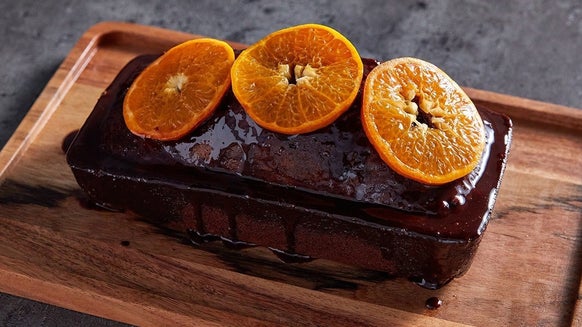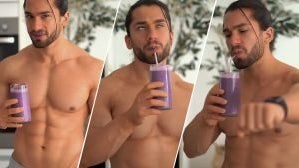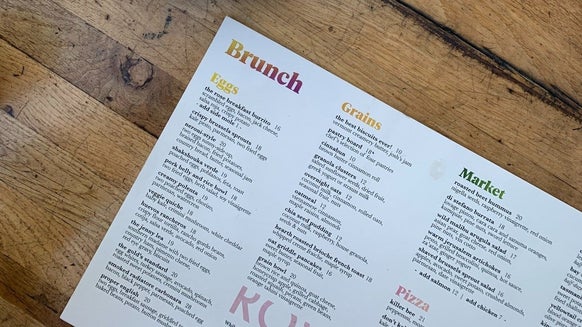
With the dramatic increase of veganism sweeping across the country, it might feel like everywhere you look there’s some sort of encouragement to ditch the dairy and go plant-based.
A recent study conducted by comparethemarket.com suggests that the number of people identifying as vegan in Great Britain has risen to as many as 3.5 million, which equates to 7% of the population.
There are plenty of different reasons why people choose to cut animal products from their diets – some do it for ethical reasons, some for environmental, some for health… some for all the above.
Here at Myprotein, we’re all about supporting you every step of the way as you try to become the best possible version of yourself. We wanted to see exactly how much of a difference a vegan diet could make to a person’s health and wellbeing, so with the help of a willing subject, we set up a 16-week experiment.
This is what went down.
https://www.youtube.com/watch?v=vA7O0lw7zSI
The Beginning
It all started with a man from Manchester agreeing to go green.
Zak Chowdhury was classed as clinically obese with a BMI of 32 when he began this transformation. The 30-year-old photographer was struggling to perform the simplest of physical tasks and found even climbing the stairs difficult – he also had a strong family history of diabetes and heart disease.
His diet was very unbalanced, consisting of sugary snacks and meat-heavy meals – Zak often skipped breakfast and regularly indulged in all-you-can-eat meat feasts.
We thought he’d be the perfect candidate to put plant-based to the test.

Going Green
Zak began our vegan nutrition and training plan. He swapped late night curries and cheesy naan breads for a high-protein vegan diet mainly consisting of vegetables, legumes and vegan protein shakes.
Below is a comparison of a typical day of eating for Zak, before and after the plan:
| Zak’s Diet Before | Zak’s Diet After | |
| Breakfast | Nothing | Shake of the Vegan Blend |
| Snack | Nothing | Apple |
| Lunch | Donner meat kebab and chips | Chickpeas, broccoli, peanut butter, a handful of nuts, bbq tofu and spinach |
| Snack | Cake or chocolate bar | Carrots and hummus or a Vegan Protein Bar |
| Dinner | Mixed grill, lamb rogan josh, rice, cheesy naan bread | Cauliflower curry with a tomato base |
One of the main challenges Zak faced throughout the transition was actually educating himself on what plant-based options were out there for him to eat.
With guidance, Zak soon got into the swing of things – and even created an Instagram account (@veganzak) to document his culinary creations.
We enlisted the help of a personal trainer from Hale Country Club, Tom Pitfield, to coach Zak through improving his fitness levels too. He started training five times a week and increased his daily step count from 3,000 to 10,000.
After the very first session, Tom admits that the four week plan he initially had lined up for Zak “had to go out the window within five seconds” due to his lack of strength and endurance.
Leg Press 4 x 8
Barbell Upright Row 4 x 8
Walking Lunges 4 x 10
Seated Plate Loaded Shoulder Press 4 x 10
Leg Extension 3 x 12
Dumbbell Lateral Raise 3 x 12
Lying Hamstring Curl 3 x 12
Barbell Lying Front Raise 3 x 12
The Results
Zak went from 243lbs to 198lbs, dropping almost 50 pounds overall. His transformation was pretty incredible – and not just from an aesthetic point of view. Arguably, the most impressive changes that he made were to his internal health.


Our registered GP, Dr Mike Orton, consulted with Zak at the beginning and end of his 16-week vegan plan. This is what he had to say,
“The vegan diet has had an astounding impact on Zak’s health, and is something we don’t usually see transform this quickly over such a short period of time.
Zak’s personal trainer Tom says that he’s seeing more and more of his clients transitioning to a plant-based diet as a way to take control of their weight and fitness.
He concluded, “Zak is a great example of how making a simple lifestyle change can dramatically overhaul your health. Zak has consumed a diet very high in animal fats for many years, so by going completely cold turkey, he’s dramatically reduced his body fat and risk of diabetes.”
And what about the man himself?
Zak said, “I hope the results inspire other overweight blokes and prove that people can reinvent themselves physically and mentally – I’ve got loads more energy and confidence to go out. And I’m starting to date again, which is a brilliant result!”
Take Home Message
Our 16-week vegan experiment with Zak clearly shows that going plant-based can be a really positive step towards weight management and reducing the risk of health conditions like diabetes. Does that mean we should all wave goodbye to chicken and cheese forever though?
We checked in with our nutritionist Jennifer Blow for her take on the transformation.
“The view that people struggle to get enough protein on a vegan diet is a complete myth. There are so many options for dairy and meat-free alternatives which can easily help provide the recommended protein intake of 0.75g of dietary protein per kg of bodyweight per day.
It might not be for everyone, but as long as you properly consider all your body’s requirements, it looks like we can give green the go ahead.
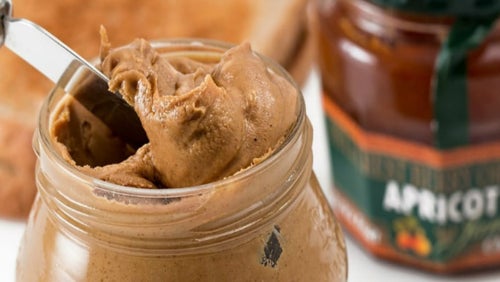
Is Peanut Butter Vegan? | Vegan Nut Butter Recipes
We don’t want to cause alarm, but it might nut be. ...
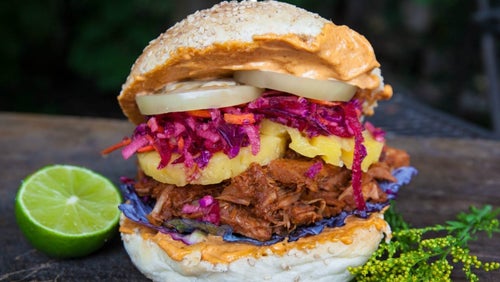
The Ultimate Vegan Food List | Substitute Your Shopping
It's nice to know your options, right? ...
| calories 0 kcal |
| totalFat 0g |
| totalCarbohydrates 0g |
| protein 0g |



